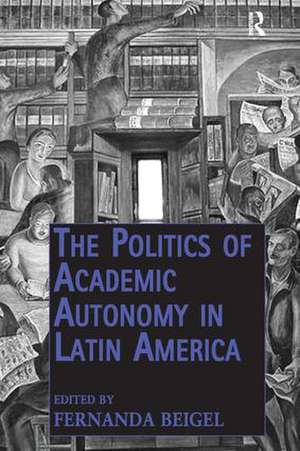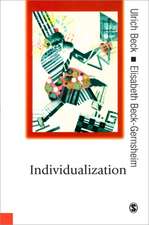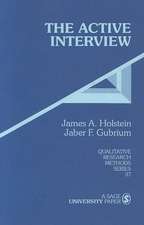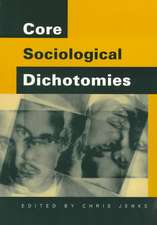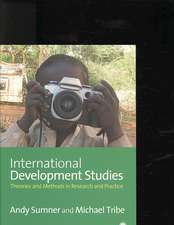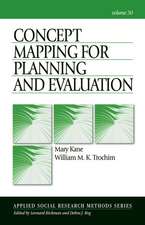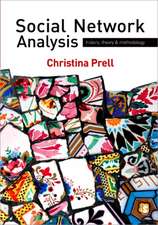The Politics of Academic Autonomy in Latin America
Editat de Fernanda Beigelen Limba Engleză Paperback – 17 oct 2016
| Toate formatele și edițiile | Preț | Express |
|---|---|---|
| Paperback (1) | 489.26 lei 43-57 zile | |
| Taylor & Francis – 17 oct 2016 | 489.26 lei 43-57 zile | |
| Hardback (1) | 1061.81 lei 43-57 zile | |
| Taylor & Francis – 11 ian 2013 | 1061.81 lei 43-57 zile |
Preț: 489.26 lei
Nou
Puncte Express: 734
Preț estimativ în valută:
93.62€ • 98.01$ • 77.46£
93.62€ • 98.01$ • 77.46£
Carte tipărită la comandă
Livrare economică 07-21 aprilie
Preluare comenzi: 021 569.72.76
Specificații
ISBN-13: 9781138252035
ISBN-10: 1138252034
Pagini: 290
Dimensiuni: 156 x 234 x 18 mm
Greutate: 0.45 kg
Ediția:1
Editura: Taylor & Francis
Colecția Routledge
Locul publicării:Oxford, United Kingdom
ISBN-10: 1138252034
Pagini: 290
Dimensiuni: 156 x 234 x 18 mm
Greutate: 0.45 kg
Ediția:1
Editura: Taylor & Francis
Colecția Routledge
Locul publicării:Oxford, United Kingdom
Cuprins
Contents: Introduction: the politics of academic autonomy in Latin America, Fernanda Beigel; Section 1 The Institutionalization of Research and Professional Training in Latin America: Peripheral Centers, Academic Diplomacy and Scientific Missions: The internationalization and institutionalization of higher education in Latin America: the emergence of peripheral centers, Fernanda Beigel; The first UNESCO experts in Latin America (1946-1958), Anabella Abarzúa Cutroni; The diplomatic competition between Chile and Brazil and the institutionalization of Latin American social sciences, Fernanda Beigel; Public Experts and diplomacy in Argentina: the Institute of National Foreign Service, Natalia Rizzo. Section 2 International Cooperation, Foreign Aid and Academic Mobility: Public foreign aid and academic mobility: the Fulbright Program (1955-1973), Juan José Navarro; Catholic international cooperation: social research and the Society of Jesus, Gonzalo Navarro Sanz; Internationalization from the margins: academic mobility at the National University of Cuyo (Mendoza-Argentina), Lucila Voloschin. Section 3 Politicization versus Professionalization?: Private foreign aid and the contest for academic autonomy: The Rockefeller Foundation at the University of Chile, Fernando Queseda; Second-generation university reforms: between modernization and political radicalism. Jorgelina Lazzaro Jam; Career-building in a highly politicized period: Argentine social scientists in the 60s, MarÃa Agustina Diez. Section 4 The Contraction of Academic Autonomy: Back home: the World University Service-United Kingdom (WUS-UK) return program for Chilean exiles, Paola Bayle; Science during Argentina's military dictatorship (1976-1983): the contraction of the higher education system and the expansion of CONICET, Fabiana Bekerman; Between scientific autonomy and academic dependency: private research institutes under dictatorship in Argentina (1976-1983) - the case of FLACSO, Victor Hugo Algañaraz Soria; Index.
Notă biografică
Fernanda Beigel, Head Professor of Sociology and Director of the PhD Programme in Social Sciences at the National University of Cuyo (Mendoza, Argentina). Associate Researcher at the National Council for Technical and Scientific Research (CONICET). Member of the International Sociological Association.
Recenzii
'Here, available for the first time in English, is a novel account of the academic politics - in their national and international contexts - that carried Latin American social science through its expansion in the 1950s and, most strikingly, through the period of dictatorships. A must-read for all those interested in the history of this most dynamic region of social science.' Michael Burawoy, University of California, Berkeley, USA 'A very timely book now that in many parts of the world the academic culture is under stress and intellectual autonomy at risk. A perspective from periphery - and a large and rich one as Latin America - is what we need to get a critical eye on this matter. The book does its job with a wealth of data which are of great interests to scholars worldwide.' Marco Santoro, University of Bologna, Italy 'Highly informative and methodologically rich: The authors-all sociologists and social scientists at the National University of Cuyo in Mendoza-present detailed information obtained through interviews, archives and curriculum vitae. This information is analyzed both qualitatively and quantitatively to highlight the agency of Latin American academics between the start of the Cold War and the 1980s. As such, the book speaks directly to real and perceived asymmetries in knowledge production in the Global North and South. ... this book will be of interest to scholars of Latin American politics in the 1960s and of university politics around the world.' Critical Reviews on Latin American Research
Descriere
Academic autonomy has been a dominant issue among Latin American social studies, given that the production of knowledge in the region has been mostly suspected for its lack of originality and the replication of Euro-American models. Politicization within the higher education system and recurrent military interventions in universities have been considered the main structural causes for this heteronomy and, thus, the main obstacles for 'scientific' achievements. This groundbreaking book analyses the struggle for academic autonomy taking into account the relevant differences between the itinerary of social and natural sciences, the connection of institutionalization and prestige-building, professionalization and engagement.
